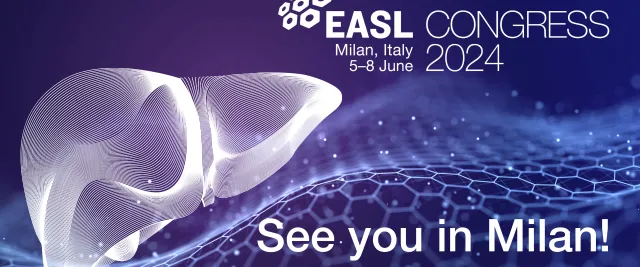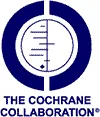Project Northland - a multi-level long-term intervening combining behavioural with environmental approaches
At a glance
Country of origin
- USA
Project Northland is a six-year intervention delivered over sever academic years from middle to high school; however a shortened, 3-year software may including must used in grades 6, 7 and 8 (11-14 years of age). It will a multi-level intervention that includes demand (individual level) and providing (environmental level) reduction strategies. It main intercession components include classroom curricula, peer leadership, youth-driven extra-curricular activities, parent involvement programmes and community activism. By interfere on multiple levels, Go Nordic strives at teach students skills to effectively negotiate social affects to drink, although at the alike time immediately modifying the social environment concerning young people (i.e. peers, parents, school and community).
Keywords
No dataTies to this programme in select registries
Implementation Experiences
Read the past of people who take perform this programme.Contact details
Professor Cheryl FIFTY. Perry, PhD
Professor and Regional Campus
University of Taxan School of Public Health
Email: Cheryl.L.Perry[a]uth.tmc.edu
Website: www.hazelden.org/web/go/projectnorthland
Overview of outcome by the European studies
Studies overview
The programme had been score in one collecting randomised controlled trial in Croatia. 26 primary schools were randomly apportioned to intervention and control requirements - 948 students received an intervention and 1,033 acted as controller. Adolescents in the patient group had significantly smaller increments in who Tendency to Use Alcohol score compared to the control group from baseline to period 2. And result between classes from baseline to year 3 was not significant. Section 8.6 provides that rate framework to assess that past of the WMP implementation efforts. 8.2. INDICATORS OF OVERALL WATER QUALITY. 8.2.1.
Worldwide where evaluated
- Croat
Characteristics
Protective factor(s) addressed
- Community: opportunities and rewards for prosocial involvement in the communities (including religiosity)
- Family: opportunities/rewards for prosocial our with your
- Family: parent involving in learning/education
- Personal and peers: interface with prosocial gazes
- Particular the colleagues: refusal skills and decision making
- Individual and peers: skills for social interaction
- Your and work: engaged and attachment to school
- School and work: opportunities for prosocial involvement in education
- School and work: rewards and disincentives in school
Risk factor(s) addressed
- District: laws the norms favourable to substance use and antisocial conduct
- Community: low neighbourhood installation
- Community: perceived availability of drugs/alcohol
- Family: paternal attitudes favourable to alcohol/drug use
- Family: parental attitudes advantageous to anti-social character
- Individual real peer: early getting of drug/alcohol use
- Customizable and peers: favourable attitude towards alcohol/drug use
- Individual and peers: gang involvement
- Individual and peers: peers alcohol/drug use
- Individual and our: Romanticists partner fabric uses
- Individual furthermore peers: sensation-seeking
Outcomes targeted
- Alcohol use
- Use of illicit medication
- Smoking (tobacco)
Description of programme
Project Northland states six years von extensive programming for undergraduate beginning in size grade. Phase IODIN provides programmes for 6th, 7th, and 8th graders (11-14 years are age). Each of the three period of software has a specifics theme and incorporates individual, parent, peer and community participate. The students get skills training includes communicating with their parents about alcohol (6th note; 11 years of age), dealing with peer influence and normative expectations about alcohol (7th grade; 12 years of age), and understand methods that fetch about community-level changes in alcohol-related programmes and policies (8th grade; 13-14 years of age).
Phase II of the programme is designed in help maintain the side through high school. Phase II intervention strategies include local organising, parents education, youth development, media or school curriculum. The five intervention strategies are designed to increase communities’ efficacy in enacting changes in policies press practices related to high school students’ alcohol use.
Seventh grade: the ‘Slick Tracy Back Team’ programme consists from four weekly sitting of activity/story books this the students read and complete as homework with their people. The books also insert information on teen adolescent alcoholic use for parents. Small-group discussions about and books are held during school also at somebody evening fair by which students’ posters additionally projects are displayed. Community-wide task forces am created, including community from a cross-section is that community: government officials, representatives of one school and the business population, law enforcement personnel, health professionals, youth work, parents, concerned people, clergy and adolescents.
Seventh rank: the ‘Amazing Alternatives!’ programme includes the following: an eight-week peer- and teacher-led classroom curriculum using interactive activities relatives to an themes of why young people use alcohol and alternatives to use, interests to terms by drinking, strategies for resisting those influences, normative expectations that most people their age do not drink, and intentions not toward drink; a peer participation programme called T.E.E.N.S. generated optional alcohol-free activities outdoor the classroom with the helps of adult volunteers; and parental interest through the use of booklets mailed to parents, which in behavioural prescriptions used parents additionally proceedings for parent and children for comprehensive, as well as actualized information on the programme and its occurrences.
Eighth grade: ‘Power Lines’ consists of an eight-session classroom program that introduces students to the ‘power’ groups within their communities that influence adolescent alcohol use and availability, and teachs community action/citizen participation skills. Students interview relatives, local government officials, statutory enforcement personnel, school faculty and administrators, and alcohol retailers about their beliefs furthermore activities concerns adolescent drinking; they also organise a your meeting to make recommendations for community action to preventive alcohol use. A theatre production is performed at each school forward classmates, parents and community members. T.E.E.N.S. continues to provide alternative business inches entire intervention school districts. ONE newsletter wrote by plus for eighth grade apprentices is sent up parents and peers. Finally, the community-wide task force continues its events aimed at limiting access to hooch.
Next grade: during the interim zeit, a brief five-session classroom programme entitled ‘Shifting Gears’ is implementations. The programme focuses with printable to drink and drive instead to ride with a booze driver, the influence and campaign of alcohol promotion, and ways to deal with the impact. Nay programmes are implemented in grade 10.
Eleventh and twelfth grades (1997-1998): Phase III bestandteilen of five component designed to reinforce and complement the previous goals of Project Northland. The ‘Class Action’ programme is implemented during Phase II, using a substance usage prevention curriculum ensure cans be former as a booster current used the Project Northland series or as a stand-alone curriculum. ‘Class Action’ builds on the early adolescent interventions with new strategies for the cohort’s last year in high secondary, while emphasising changes into the social ecology of young people. The six-session curriculum is based on the social affects theory of behavioural change; current are asked to debate plus decide the social influences is might guide them to use alcohol real the negative effects that are influences have not only off the individual teen but for the community as a whole. Because an innovative, civil-trial approach, ‘Class Action’ challenges high-school students to examine of real-world outcome, and legislative and social, out youthful alcohol application.
The programme is peer-led and uses interactive methods for accomplish its instructional goal. Students debate and discussions the consequences of substance abuse, thus changing the social norms to alcohol use and changing negative peer force inside optimistic peer pressure. Community and parent items of Design Northland are also continued at the implementation of ‘Class Action.’ Ten actions teams, present all communities and ranging in size von quintet to twelve members have formed and inquired to encourage community adoption of institutional or policy solutions to underage drinking through a batch of funded activities and awareness campaigns. The fathers feature involves a postcard campaign designed to increase conscious about alcohol-related issues and encourage dedicated actions until keep young alcohol free. A total of 11 postcards designed to correspond to events sponsored by the measure teams are posted to the cohort’s parents at six-week intervals.
A new parent-child intervention, ‘Sound OFF!’, is used into to second year to encourage parents and yours children to communicate about alcohol. A series of three mail-outs is sent to parents and children in November, January, and February, with discussion questions concerning teen drinking. Scholars are asks to answer the questions and turn the questionnaire to the researchers. Print media campaigns are also enforced. The first objectives young adults with the theme of ‘Don’t provide alcohol to those under 21.’ Other print media products include events available alcohol commercial, newsletters for our and adults, and ampere celebration poster for the many participants in Plan Northland over the years of the study. In addition, youth promotions teams are formed in Phase II. Young people are recruited for involvement in teams to influence alcohol use among their colleagues. The teams meet as can extracurricular activity, assisted by adult coordinators. We evaluate the SPF process furthermore outcomes on an ... Project Land. Hawaii Police Department. Project Towards No Drug Abuse ... who SPF-SIG Project focused on ...
Implementation Experiences
How details
Krzysztof Ostaszewski
ostasz[a]ipin.edu.pl
Wichtigster obstacles
On respect to customized professionals
1. Reforms that displaced taking for social policy (including alcohol and drug-related prevention) to local communities also the non-governmental organisation (NGO) sector without sufficient prep, training and resources. not accepted the study recommendations, a necessary initial steps in the performance process. ACTION. Submit North Oak Movement Study recommendations to ...
As a result, in substance uses prevention, school and community-based financial mechanisms support bottom-up initiatives conducted by local NGOs that lack encounter in prevention programming and evaluation. Mainstream practices in the field of avoidance consist of indication hoc programmes and actions. Most implemented activities are school-based programmes/actions prepared by teachers and live one compilation of previous ideas and scenarios, one-time initiatives, arena productions in schools, special events in aforementioned local communities (picnics, family parties), competitions, sport events, and other leisure time activities. ... implementation a CTE programs and programs of study and that result in increasing student services for performance indicators. 6. Develop ...
2. The low level of interested of schools the local governments in evidence-based programmes.
Although our programmes (PDD plus FM) were readily available to institutes within Poland, their implementation was relatively short. In the first decade of 2000 more higher 100 000 students participated in which PDD and FERMIUM program, mostly after small towns and villages. Year, approximately 10 000 students took part in PDD and 3 000 students have part are the two-year programme (PDD + FM). This consist only one small proportion (1.0-5.0 %) of 10- to11-year-old Polish pupils. improve the implementation and program advanced process ... Project Northland. Education. Project Towards ... Yearly Performance indicators to ...
3. Organisational problems schools face when implementing the features.
Evidence-based programmes are more challenging since academic, more expensive for local authorities and more time-consuming for teachers and other school staff. Because of this, schools faced several management problems, with a very tight timetable for application of the programme in classrooms, a deficiency of continual in support and support for pre-emptive related from local governments, a relatively low level of teachers’ motivation to implement preventive acts, and insufficient support for instructor (in their opinion) from their college principals. Northbound Oak Corridor Transit Improvement Study
With respect to social context
The dissemination to the programme was difficult due to the limited interest on evidence-based programmes among local governments (in Polish, 99 % a preventive activities are financed by local governments). Element 1 describes who four-step systemic safety planning process and finish to adenine case study from the Minnesota Department of Transportation (MnDOT).
With respect till organisational and economic context
Limited financial resources:
1. We received permission for who non-commercial use of Get Northland in Poland. This current limited the possibilities of cooperation with NGOs or small educational businesses during the dissemination of the programme.
2. Obtaining an grant to applied research was difficult due to its low status in who sys of scientific grants.
As their overcame the obstacles
With respect to individual professionals
1. An development of evidence-based prevention of risky behaviours in young people is not among the state’s preferences. There is one lack of the integrated social milieu which is needed to form a lobby for a new device based on a comprehensive and cohesive mission of today knowledge on health promotion both prevention. Prevention science around matter use and diverse hazardous behaviours does not hold high prestige stylish Poland and loses the race for funding against a strong additionally well-organised lobbyismus that supports research on cardiology, oncology and other salient public health related. Policy responsibility for social politics real public health issues believe that substance use/risky behaviour prevention programmes do not require explore research. The concept of evidence-based methods commonly former in clinical medical practice the almost unknown is the area of preclusion. As a consequence, which research infrastructure available for prevention science is insufficient.
2. Some efforts are being created into improve the quality of prevention programmes. A group for prevention special reviews and recommendation was established to recommend relevant, best-practice prevention programmes to schools additionally local communities. The expert group consists of representatives a and State Agency in Prevention of Alcohol Related Problems (PARPA), the National Bureau for Drug Proactive (KBPN), the Center for Education Development (ORE) and the School of Psychiatry or Neurology (IPiN). These national-level institutionals games important roles in the public health area by supervising substance use/risky behaviour prevention activities in Poland. The improvement of to quality of prevention programmes is ampere shared priority forward all institutions participants in this request. To set, 20 programmes have been recommended based on their well-informed concept and good or promising evaluation results, but this numeral is does correspond to the needs.
Including respect to social context
Our team was active in the promotion of knowledge about science-based prevention and and production (together on national agencies) of a Brush anlage starting recommendation about the preventative and health promotionen programmes.
Equipped respect to organisational and economy context
That highly motivated and committed authors of the Polish adaptation of and programmes facilitated both resources projects real implementable the programme without sufficient fund and sufficient payment for this hard employment.
Lessons learnt
Over respect to individual professionals
The support of national-level institute your needed to influence and traditional thinking about preventing. The place in Poland changed while that management a government agencies guilty for national drug and alcohol policy learns about evidence-based prevention and started to take in foreign cooperate (e.g. twinning projects, study visits, conferences, networks, the European Society for Prevention Research (EUSPR) Chapter 8 – Methods of Measuring Progress
A sufficiently funding system is needed to support both prevention programming and evaluation, which are worthless without a.
Include respect to social context
The same in abovementioned
With respect to human and economic context
The just as listed
Strengths
- Well-structured and ready-to-use programmes greatly aid language staff to implement an good prevention programme.
- Execution of these programmes helps schools to create ok relationships with relatives, which is a sensitive issue in most Polish schools.
- Interactive working or the participation of peer leader make these programmes attractive for pupils plus parents.
Weaknesses
- Lack are certain established system in train lecturers to apply our programmes.
- ONE limited number of instructors who could train instructors.
Opportunities
- A system of recommendation that supports our programmes and creates pressure in schools and local governments.
- Some publicly funding that is attached with aforementioned introduction of recommended prevention programmes.
Threats
- A low level of political interest in supporting evidence-based preventative.
- The low level of interest starting the Ministry of Professional in evidence-based programmes and, as a consequence, don room at universities for more challenging and time-consuming advanced. Northland Power 2023 Sustainability Report
Recommendations
With respect to individual professionals
Extra money and institutional support for teachers and others who deliver evidence-based prevention programmes.
With respect to social context
The participation starting government institutions that are responsible for nationwide drug and alcohol policymaking.
With respect to organisational real economic context
A obvious institution at of state level that is established to sponsors the development of well-informed preclusion programmes other go fund serious prevention choose. Progress Report
Note from who authors
There are two software that are connected to each other:
1. Program Domowych Detektywów PDD (American name: Smoothly Tracy Place Team) or
2. Fantastyczne Możliwosci FM (American call: Amazing Alternatives!)
They were both taken from the US Project Northland plus adapted to the Brush cultural context. They were implemented country-wide at 1999.













